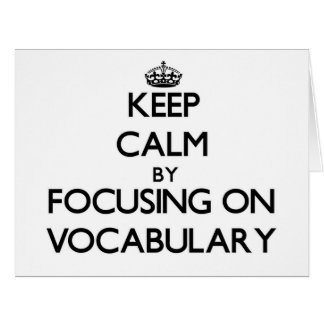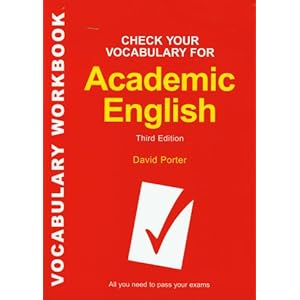Now that
the Culture Days are over, I am going to blog about ten I went to. I have to
say that there have beena number of culture topics I really wanted to listen to
but due to exams as well as other classes I only got to see 14. Among them,
there were three Irish topics and 11 American. Seeing some presentations on
Monday just made me even more nervous than I already was of giving my own
presentation. Everyone did a very good job!
The first
one I had seen on Monday morning was from Julia “Irish Intelligence at its peak”.
As this was the very first presentation I went to, I didn’t have any expectations.
I think she did a very good job and she has a very good pronunciation. I have
to admit that when I read the title, I couldn’t really imagine what this topic
will be about. As far as I can remember it was about Michael Collins and the
War of Independence. As we had to fill in a feedback sheet as well as a handout,
it made it hard for me to concentrate on her topic and to fully understand it. So
during the next presentation I filled them in afterwards.
The next
presentation I went to was an American one. Sophie gave a presentation about
great American entrepreneurs. As with the topic before, I couldn’t really
imagine what she will be talking about. The title didn’t say a lot and I hadn’t
it expected to be that interesting. Her pronunciation was really good and she I
liked it that she was interacting with the audience. It was a very current
topic as it was about the men that invented Google, Facebook, Snapchat and
Instagram for example.
After
Sophie it was Klervie’s turn. She talked about the TV show Homeland. I have
heard about this show before but I have never watched it. It sounded really interesting
and I think it gives a very good insight in America’s security system. I really
liked her prezi but she should work on her pronunciation as it was hard to
understand her with her French accent.
The last
presentation I went to on Monday was from Vid. He talked about the
role of religion in the US education system. Although I am not that
interested in religion, I know that in some parts of America religion plays an
important role. I have to admit that I haven’t understood a lot of Vid’s
presentation. It was very difficult to get the words he said because he talked
very fast. He seemed nervous – which I couldn’t really understand because I
know that his English is very good!
The rest of
the presentations I went to were held on Tuesday. I had seen three
presentations before I had to give my own.
The first
one on Tuesday was from Cordula and it was about the Cuban Missile Crisis. I
have only heard of this topic before because I mentioned it in my own
presentation as JFK was president in 1962. She seemed very confident and
well-informed about her topic.
The next
presenter was Tanja. She talked about the Salem Witch Trials and McCarthyism.
She has a very good pronunciation and seemed confident as well. (and I got more
and more nervous!!!)
The next
presentation was from a very good friend of mine, Beatrice. I have been
listening to her topic the day before about 3 times as we were practicing a
lot. In my opinion, she had a very interesting topic with a lot of new
information. For example, I haven’t heard of a city called Palo Alto before. I
know there is a movie called Palo Alto, but I didn’t know that this is a city
in California. And Palo Alto is considered the most livable city in America.
Although I know that se was very nervous, she seemed confident and spoke very
fluently.
Then it was
my turn. As I have mentioned in a blog post before, I talked about the Kennedy
brothers, in particular, about Robert and Edward Kennedy.
The next
presentation was about some great African Americans and their speeches. The presenter
was Sarah. Her pronunciation was impressive. She used easy and therefore, it
was easy to understand her. I was interested in her topic, because I did some research
myself on Martin Luther King as I showed a part of a speech during my
presentation where Bobby Kennedy was announcing the death of MLK.
This was a
real culture presentation-marathon I had on Tuesday. The next one was from
another very good friend of mine, Annina. As with Beatrice’s topic, I have heard
it a couple of times before. In my opinion this is a very important topic and
there were some information which really surprised me. I cannot understand why
sex-education is not provided in every state?! As there is no cure for AIDS so
far, it is essential that everybody is informed about it!
The last
American culture presentation I went to was from Sabrina. She talked about the
origin of the Chinese American Culture. It was quite interesting although it
Sabrina seemed as if she herself was not that interested in her topic. In my
opinion, she should have shown more enthusiasm because that would the audience
as well make more interested in her topic. Other than that, she did a good job.
All in all there were a number of interesting presentations which gave a great insight in American as well as Irish culture.
Topics for
the KGP:
HIV and discrimination: I
chose this topic because I think that this is a very current topic and it is important
to know about it!
Livability in America:
Very interesting to know what contributes to the quality of life. Moreover, I
am really into geography.
Flappers - the roaring '20s:
Although I haven’t been able to watch this presentation, I have read through Julia’s
topic in class. As I am a woman, I think that is a great topic to study.
Guantanamo:
Nearly everybody had heard of the name Guantanamo but only a few people do know
what’s happening there. I haven’t watched the presentation but as I was very
interested in this topic I’ve read through it and some information was just shocking!
Great
American Entrepreneurs: This would be a totally differtent topic to the others.
It is about technology.What's more, it is a very current topic because all these inventions affected our lives.


 Another sound which I have to work on is the
Another sound which I have to work on is the




